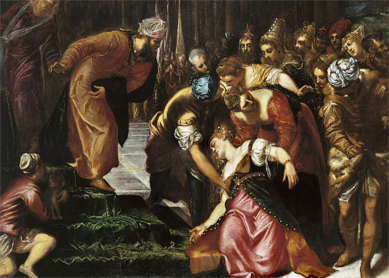Q. In the Book of Esther, why is King Ahasuerus so in love with Esther?
A. Who knows the secrets of the human heart?
Perhaps this is why the biblical text actually gives no clear reason for the king’s love for Esther. All we have is the notice that “the king loved Esther more than all the other women” (
That he loved her is noted, but why is not.
We could point to various things that the text says about Esther as fitting reasons for Ahasuerus to love her: that she is admired by all who saw her (
But all this is just supposing.
There is, however, something interesting going on in the assertion that King Ahasuerus loved (’ahav) Esther. The Hebrew verb “to love,” ’ahav, is not always used of couples in the Hebrew Bible. So when ’ahav shows up, we should pay attention.
In biblical narratives, the verb ’ahav, when it describes the relationship between a man and woman, is almost always used to describe a man’s love for a woman (and not vice versa). That is, ’ahav is not used to describe reciprocal or mutual emotion and, indeed, is overwhelmingly associated with men and may thus be suggestive of their social privilege.
So what does this mean for Esther? Within the context of her book, we can at least say Ahasuerus has a feeling for Esther that he has not expressed for any other woman. It may mean that he will not cast Esther off as lightly as he cast off his previous wife, Vashti. But the connotations of ’ahav mean that we should be careful not to import modern western assumptions about romantic love into our understanding of Ahasuerus’ feeling; it may well be that the verb ’ahav signals Ahasuerus’ power—the same power that allows him to issue dangerous edicts and bar people from his sight.
Or perhaps the point is simply that Ahasuerus’ feeling signals yet another turn of events, one among many, that will put Esther in the right place at the right time (




